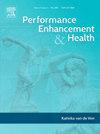塑料人:对Fry的回应
IF 3.7
Q2 HOSPITALITY, LEISURE, SPORT & TOURISM
引用次数: 0
摘要
怎样才能成为一名好教练?在神经科学中获得的见解如何影响教练,如果有的话?教练的神经伦理学有价值吗?在罗伯特·西蒙(Robert Simon)的选集《体育教练伦理》(The Ethics of Coaching Sports)的一章中,杰夫·弗莱(Jeff Fry, 2013)认为,“我们正站在另一场科学革命的门槛上”(第151页)。这场新的革命源于我们对人类大脑不断增长的理解。根据Fry的说法,很明显,对于那些有眼睛看东西的人,或者我应该说那些有神经元的人,神经科学深刻地影响着我们的日常生活,包括体育世界。在本文中,我对弗莱的断言提出异议。事实上,没有理由假设大脑就是人。大脑是人的一部分,而不是整个人。大脑的变化总是发生在人类生活的背景下。这些变化是个人的,而不仅仅是大脑的。因此,教练需要是人的专家,而不是大脑的专家。本文章由计算机程序翻译,如有差异,请以英文原文为准。
The plastic person: A response to Fry
What makes a good coach? How should insights garnered in neuroscience affect coaching, if at all? Does the neuroethics of coaching have purchase? In a book chapter for Robert Simon's anthology “The Ethics of Coaching Sports”, Jeff Fry (2013) argues that, “we stand at the threshold of another scientific revolution” (p. 151). This new revolution is born of our ever-growing understanding of the human brain. According to Fry, it is clear, to those with eyes to see, or should I say those with neurons that fire, that neuroscience deeply impacts our daily lives, including the world of sport. In this paper I take issue with Fry's assertions. In fact, there is no reason to posit that the brain is the person. Brains are a part of the person not the whole person. Changes in the brain always occur in the context of a human life. These changes are personal not merely cerebral. As such, coaches need to be experts in people, not brains.
求助全文
通过发布文献求助,成功后即可免费获取论文全文。
去求助
来源期刊

Performance enhancement and health
Social Sciences-Health (social science)
CiteScore
4.70
自引率
0.00%
发文量
27
审稿时长
57 days
 求助内容:
求助内容: 应助结果提醒方式:
应助结果提醒方式:


